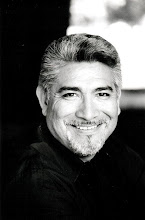Being in the real estate market has changed over time. There was a time when residents of the country stayed in the same area and lived in the same houses for decades at a time. In those times, being a real estate professional was ALL about local knowledge.
But I believe those times have changed.
We live in a transient society. Where the average work tenure at a particular company has dropped from 20 years to 5 years; where people live in one community, go to school in a different community (or state) and live in multiple cities over their l
 ifetime.
ifetime.Local knowledge is still very, very important. But it will take more than that to thrive in the "new reality" that is 2009. This requires the real estate professional to change his/her way of marketing themselves and their local knowledge expertise. But ... how?
Essentially, real estate professionals must use "Web 2.0" applications and tools. "Well, what are these," you might ask. Let me try and give you a brief overview.
Essentially, Web 2.0 encompasses the set of tools that allow people to build social and business connections, share information and collaborate on projects online. That includes blogs, wikis, social-networking sites and other online communities, and virtual worlds.
Millions of people have become familiar with these tools through sites like Facebook, Wikipedia and Second Life, or by writing their own blogs. And a growing number of marketers are using Web 2.0 tools to collaborate with consumers on product development, service enhancement and promotion. But most people still don't appear to be well versed in this area.
The real power of these tools is not just to write about your own subjects, rather it is to get people consumers involved, inviting them to participate in marketing-related activities from product development to feedback to customer service.
How can you do that?
The Upside
One leading greeting-card and gift company has set up an online community -- a site where it can talk to consumers and the consumers can talk to each other. The company solicits opinions on various aspects of greeting-card design and on ideas for gifts and their pricing. It also asks the consumers to talk about their lifestyles and even upload photos of themselves, so that it can better understand its market.
The Danger
But with this great connection comes a potential problem. Consumers are grabbing power from companies - this means you! I would bet that most of your sales training is about "controlling the client": about the type of information they should get about a transaction to the amount of contact with the opposing agents' client.
Let's face it. Companies are used to being in control. They typically design products, services and marketing messages based on their own particular view of what people want. Keeping up with customers has meant conducting research on their needs and test marketing new products and services. Because the balance of power has favored large corporations with a lock on manufacturing, advertising, distribution and other operations, the term “customercentric” was mostly just a buzzword.
Now, though, many customers are no longer cooperating. Empowered by online social technologies such as blogs, social networking sites like MySpace, user-generated content sites like YouTube and countless communities across the Web, customers are now connecting with and drawing power from one other. They’re defining their own perspective on companies and brands, a view that’s often at odds with the image a company wants to project. This groundswell of people using technologies to get the things they need from one another, rather than from companies, is now tilting the balance of power from company to customer.
That's what's going on with Trulia and Zillow and other real estate data aggregation sites. They've recognized this groundswell of customer power and have filled the gap that traditional real estate professionals have not.Folks, you've got to get in the game! No matter how much local knowledge you have, if you don't understand the new marketing and information sharing rules of this consumer-focused reality, you'll have a very disappointing 2009 and short career as well.
With the help of some of my colleagues at MLSListings, some experts in social media, online marketing, and successful brokers and agents around the country, we hope to provide you some clarity in this new reality. Stay tuned to this blog for updates and our podcast for brief technology concepts and techniques.
In the meantime, here are some brief videos that will open your door to the new reality.
What is Social Networking?
"What is a Blog?"
"How To Use Facebook"
Learn More About Facebook Through its Site tour -- powered by ExpertVillage.com
Until next time, if you have any questions, please dont hesitate to get in touch.





